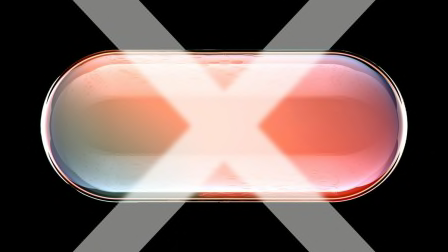The Truth About Popular Sleep Supplements
Do melatonin, CBD, magnesium, valerian, and other sleep supplements actually work?

Americans have plenty of trouble sleeping. Only 41 percent say their sleep is good or very good, according to an October 2022 nationally representative survey (PDF) of 2,084 U.S. adults by Consumer Reports. And nearly all Americans—91 percent—say they’ve experienced at least one sleep challenge in the past year, according to the survey.
To see all of CR’s sleep coverage, go to our Guide to Better Sleep.
Melatonin
Your body runs on an internal clock called the circadian rhythm. Melatonin, a naturally occurring hormone, helps signal to your brain that it’s bedtime. That’s the idea behind using a melatonin supplement at bedtime.
The evidence suggests that taking melatonin can help people fall asleep about 7 minutes faster, on average, and studies show that it’s useful for people with jet lag or a sleep disorder called delayed sleep phase syndrome. But to avoid interfering with your body’s natural production, high doses should not be taken long term, says Selena Chan, DO, a psychiatrist and interim director of clinical programs at the University of California San Francisco Osher Center for Integrative Health. (For more on this popular supplement, see our articles on melatonin for adults and melatonin for kids.)
CBD
Some people use this compound, a nonpsychoactive derivative of hemp or marijuana, to relieve anxiety and promote sleep.
A 2017 paper suggested that CBD may be a reasonable treatment for insomnia, but the scientists said that such research is in its infancy and that more long-term studies are needed. As long as you’re practicing good sleep habits and not taking other medications at the same time, Chan says CBD may be beneficial before bedtime. Just check with your doctor first.
And shop carefully. CR tests have found that some CBD gummies don’t have the amount of CBD advertised on the label.
Magnesium
The mineral magnesium may help reduce stress and relax the body before bed. Magnesium supplements can be taken as pills or as a powder added to drinks.
Research in this area is scarce, however. While some studies link magnesium to better sleep quality, it’s unclear whether supplementing helps with sleep disorders such as insomnia and restless leg syndrome. (Be sure to avoid types called magnesium oxide or citrate for sleep use because these forms are more commonly used as laxatives.)
Iron
Iron deficiency is closely linked to restless legs syndrome, a condition marked by uncomfortable sensations in the limbs and an uncontrollable urge to move them, which can interfere with sleep. Think this might be your problem? Consult a doctor before self-treating. Taking iron could mask a more serious problem.
Plus, for people without a deficiency, supplementing could lead to iron overload, which can damage organs.
Vitamin D
A growing body of evidence suggests a link between low levels of vitamin D and sleep troubles.
One study of 89 adults with sleep disorders, published in 2018, found that when people whose vitamin D levels were on the low side (but not deficient) took supplements regularly for eight weeks, they said they nodded off faster, slept longer, and had better sleep quality than those who received a placebo.
But other research has found that in certain populations, the supplements have no positive effect on sleep or may worsen it. What to do? Talk to your doctor about getting tested for vitamin D deficiency and whether supplements might be worth a try.
Valerian
This root has been used for centuries to treat insomnia. And several studies suggest that this supplement may help people fall asleep faster and wake up less often at night, though next-day grogginess may occur. But other studies show no benefit.
Such mixed findings may be due to the variable quality and instability of active ingredients in valerian, according to a 2020 research review, so be sure to check for a trustworthy seal on the bottle.
What Else to Try
A consistent sleep routine can help signal bedtime to your body. Relax without screens, whether you journal, read, or take a bath, Chan says. Try to limit alcohol, and don’t consume caffeine after lunchtime. For sleep disorders, medication or a form of psychotherapy called cognitive behavioral therapy for insomnia (CBT-I) can also be effective.
For more on healthy sleep, see CR’s Guide to Better Sleep.
Editor’s Note: This article was adapted from material that appeared in the February 2022 and January 2023 issues of Consumer Reports magazine.





